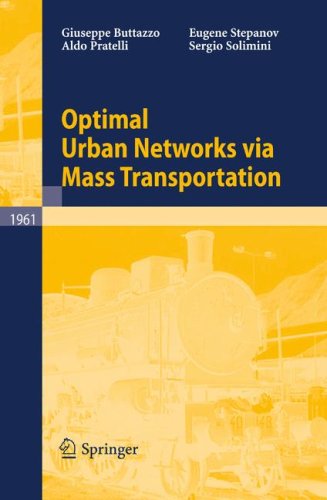

Most ebook files are in PDF format, so you can easily read them using various software such as Foxit Reader or directly on the Google Chrome browser.
Some ebook files are released by publishers in other formats such as .awz, .mobi, .epub, .fb2, etc. You may need to install specific software to read these formats on mobile/PC, such as Calibre.
Please read the tutorial at this link: https://ebookbell.com/faq
We offer FREE conversion to the popular formats you request; however, this may take some time. Therefore, right after payment, please email us, and we will try to provide the service as quickly as possible.
For some exceptional file formats or broken links (if any), please refrain from opening any disputes. Instead, email us first, and we will try to assist within a maximum of 6 hours.
EbookBell Team

5.0
80 reviewsRecently much attention has been devoted to the optimization of transportation networks in a given geographic area. One assumes the distributions of population and of services/workplaces (i.e. the network's sources and sinks) are known, as well as the costs of movement with/without the network, and the cost of constructing/maintaining it. Both the long-term optimization and the short-term, "who goes where" optimization are considered. These models can also be adapted for the optimization of other types of networks, such as telecommunications, pipeline or drainage networks. In the monograph we study the most general problem settings, namely, when neither the shape nor even the topology of the network to be constructed is known a priori.